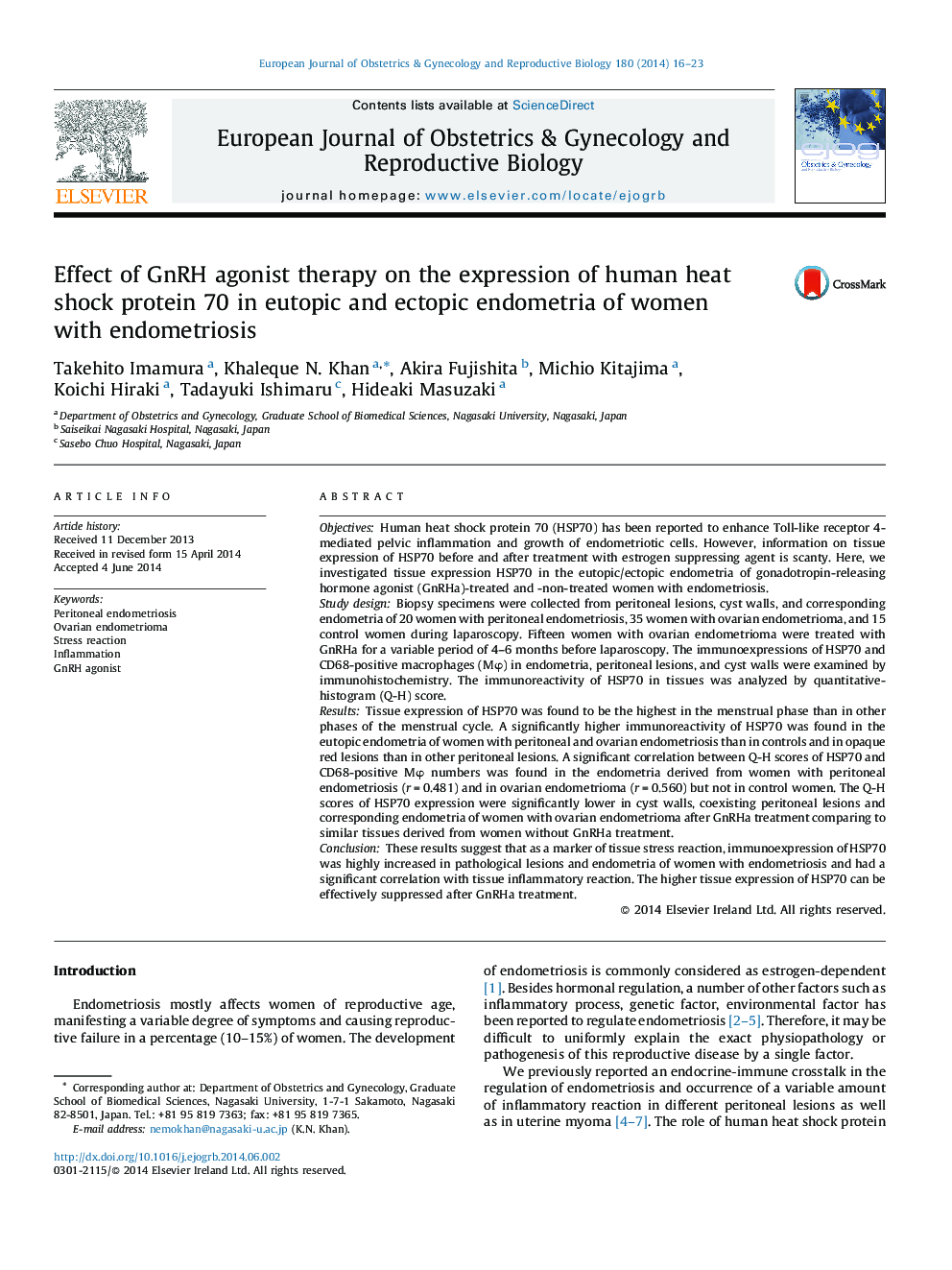| Article ID | Journal | Published Year | Pages | File Type |
|---|---|---|---|---|
| 6173565 | European Journal of Obstetrics & Gynecology and Reproductive Biology | 2014 | 8 Pages |
ObjectivesHuman heat shock protein 70 (HSP70) has been reported to enhance Toll-like receptor 4-mediated pelvic inflammation and growth of endometriotic cells. However, information on tissue expression of HSP70 before and after treatment with estrogen suppressing agent is scanty. Here, we investigated tissue expression HSP70 in the eutopic/ectopic endometria of gonadotropin-releasing hormone agonist (GnRHa)-treated and -non-treated women with endometriosis.Study designBiopsy specimens were collected from peritoneal lesions, cyst walls, and corresponding endometria of 20 women with peritoneal endometriosis, 35 women with ovarian endometrioma, and 15 control women during laparoscopy. Fifteen women with ovarian endometrioma were treated with GnRHa for a variable period of 4-6 months before laparoscopy. The immunoexpressions of HSP70 and CD68-positive macrophages (MÏ) in endometria, peritoneal lesions, and cyst walls were examined by immunohistochemistry. The immunoreactivity of HSP70 in tissues was analyzed by quantitative-histogram (Q-H) score.ResultsTissue expression of HSP70 was found to be the highest in the menstrual phase than in other phases of the menstrual cycle. A significantly higher immunoreactivity of HSP70 was found in the eutopic endometria of women with peritoneal and ovarian endometriosis than in controls and in opaque red lesions than in other peritoneal lesions. A significant correlation between Q-H scores of HSP70 and CD68-positive MÏ numbers was found in the endometria derived from women with peritoneal endometriosis (r = 0.481) and in ovarian endometrioma (r = 0.560) but not in control women. The Q-H scores of HSP70 expression were significantly lower in cyst walls, coexisting peritoneal lesions and corresponding endometria of women with ovarian endometrioma after GnRHa treatment comparing to similar tissues derived from women without GnRHa treatment.ConclusionThese results suggest that as a marker of tissue stress reaction, immunoexpression of HSP70 was highly increased in pathological lesions and endometria of women with endometriosis and had a significant correlation with tissue inflammatory reaction. The higher tissue expression of HSP70 can be effectively suppressed after GnRHa treatment.
